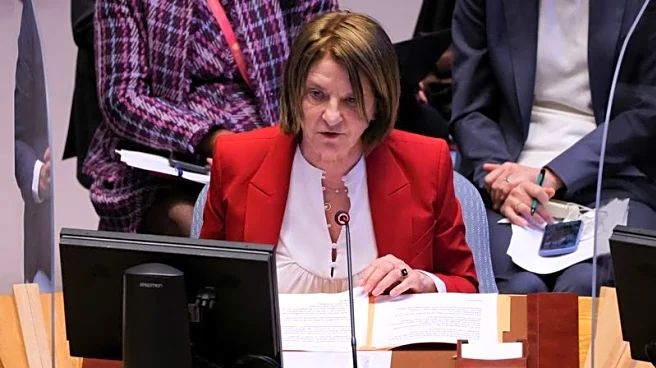What's Happening?
NATO is set to conduct formal consultations at the request of Estonia following an alleged violation of its airspace by Russian fighter jets. Estonia claims that three Russian jets entered its airspace without authorization, prompting the Baltic nation to invoke Article 4 of NATO's founding treaty. This incident follows a similar situation where around 20 Russian drones entered Polish airspace earlier in September. In response to these events, NATO launched Operation Eastern Sentry to enhance its military presence along its eastern flank. Article 4 allows member countries to request consultations when they perceive a threat to their territorial integrity or security, but it does not automatically lead to military or diplomatic actions.
Why It's Important?
The invocation of Article 4 by Estonia underscores the heightened tensions between NATO member states and Russia, particularly in Eastern Europe. This move highlights the ongoing security concerns in the region, especially following Russia's actions in Ukraine. The consultations serve as a mechanism for NATO allies to coordinate and address perceived threats collectively, reinforcing the alliance's commitment to mutual defense. The situation also reflects the strategic importance of maintaining a unified response to potential aggressions, which is crucial for the stability and security of NATO's eastern members. The outcome of these consultations could influence future NATO strategies and military deployments in the region.
What's Next?
As NATO conducts these consultations, potential outcomes could include increased military readiness or further strategic deployments along the eastern borders of the alliance. The discussions may also lead to diplomatic engagements with Russia to address the airspace violations and reduce tensions. NATO's response will be closely watched by member states and could set a precedent for handling similar incidents in the future. The alliance's ability to present a unified front will be critical in deterring further provocations and ensuring the security of its members.
Beyond the Headlines
The repeated invocation of Article 4 in recent weeks suggests a growing reliance on diplomatic mechanisms within NATO to address security concerns. This trend may indicate a shift towards more proactive engagement among member states in response to external threats. Additionally, the situation highlights the delicate balance NATO must maintain between deterrence and diplomacy in its interactions with Russia. The alliance's actions could have long-term implications for its strategic posture and its relationships with non-member countries in the region.










